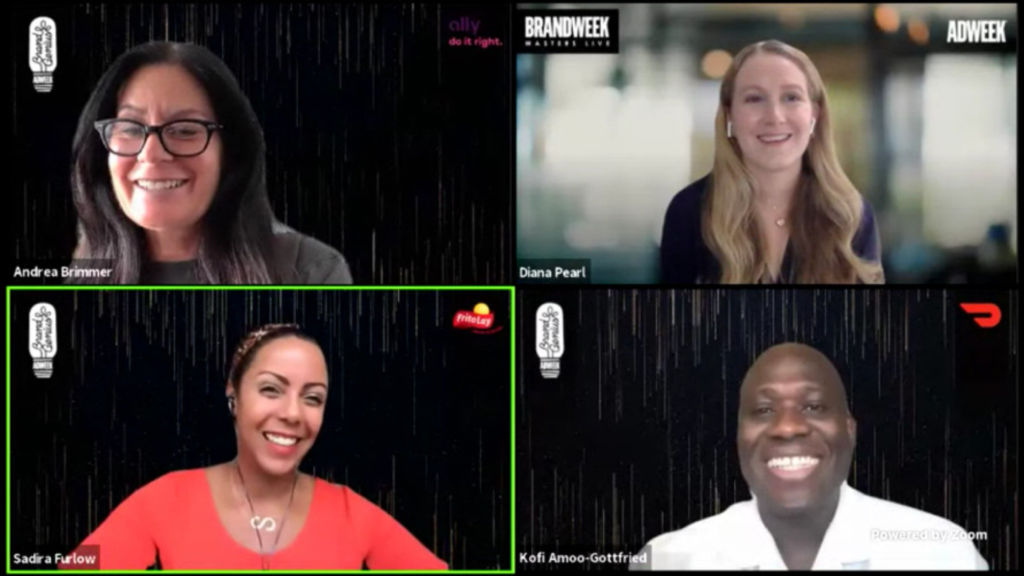3 Ways Brands and Marketers Will Be Forever Changed by 2020 – Adweek

|
Getting your Trinity Audio player ready...
|
SOURCE: Lisa Lacy | Adweek
We still have a little over three months to go in 2020, but the year has already become synonymous with unprecedented challenges and changes following a global pandemic and ongoing calls for social justice.
“It doesn’t matter what business you’re in. None of our plans that we made as of Q4 last year for 2020 are relevant anymore,” said Kofi Amoo-Gottfried, vice president of marketing at DoorDash, in a session on the New World Order during the first day of Brandweek on Monday.
Here’s a closer look at what brand leaders like Amoo-Gottfried have learned so far this year, along with the three primary ways they say business as usual has been forever upended by a moment that has changed us personally and professionally:
The new normal is the norm
For starters, consumers have embraced digital like never before and so, brands need to look forward instead of backward.
According to Andrea Brimmer, chief marketing and public relations officer at Ally, the migration to digital during the pandemic has yielded an influx of new customers for Ally.
“I think that’s probably something that will persist for a long time just because people have found that frictionless experience and they’re now questioning, ‘Why did I ever do it the old way?’” she said.
Amoo-Gottfried said the shift to ecommerce and the convenience economy is here to stay—although it may not remain as elevated as it is now across all categories.
“I don’t see that going back,” he said.
The key is to embrace the new normal as if you chose it instead of questioning when we’ll get back to the way things were, added Sadira Furlow, vice president of marketing at Frito-Lay. (Furlow, like Amoo-Gottfried and Brimmer, are among Adweek’s Brand Genius honorees this year.)
“Look at what you’ve been able to accomplish over the past six months that you haven’t been able to do before,” Furlow said. “How do you codify that and make that as a part of your business continuity plan and take those lessons with you versus trying to get back to a time that is long gone?”
Marketers have to think with their hearts
Brands have also become more human in the past six months—and part of that means being better listeners, Furlow said.
“I think more than ever, this time required us as brands to really put the consumer first to have them at the table and be much better at listening to them and then delivering on what they needed,” she said.
In fact, Brimmer said, marketers should think like human beings instead of, well, marketers.
“We have to recognize that if you don’t think about the way that your customers are feeling and the mood of the country, then you’re just being completely tone deaf,” she said. “I think you can only behave in that manner when you really think with your heart and you think like a human being and [you’re] not trying to think like a marketer.”
Similarly, Amoo-Gottfried said the most important thing for brands to do is to lead with generosity and focus on what consumers need.
“Empathy for your consumers, your customers, your peers, your colleagues, just showing up [as] more human and bringing what I [call] grace to that—I think it allows us to focus on the right actions and to just be able to navigate it together versus some of the pressure of being perfect,” Furlow added.
Brands must act
This year has also proven brands have to back up their words with actions, especially when it comes to social justice.
“People have trepidation [about] wading into this space because they don’t understand it, but the entire country is not good at this,” Amoo-Gottfried said. “We live in a country that has a racist history and a racist present. So I think the job is to get started.”
Furlow said Frito-Lay parent PepsiCo has taken steps with initiatives like a $400-million commitment to fund initiatives focused on racial justice and equality as well as partnerships with Black-owned restaurants and collaborations with farmers to help the communities the brand serves.
“This just really put us on our front foot of … we want to do more, we want to bring more joy, we want to be a part of this change around systemic racism,” Furlow said.
It’s easier to take action when brands have clarity of purpose, Amoo-Gottfried said. And, in DoorDash’s case, that purpose is empowering local communities, which is why the brand has cut its commissions and now enables partners to cash out daily instead of having to wait until the end of the month.
DoorDash has also highlighted Black-owned restaurants on its platform, helping drive an increase in searches for those businesses by 275 times. It partnered with Kiva, a nonprofit that crowdsources loans for underserved communities, to help Black entrepreneurs get loans, and it has committed to match loans to U.S.-based participating restaurants.
“So we’re finding ways to lean in, whether that’s through waiving commissions through the end of the year or by driving people to [Black-owned businesses],” Amoo-Gottfried said. “But this is all work that’s going to take a lifetime.”
Noting the financial services industry has long contributed to racial inequality in the U.S., Brimmer said Ally dedicated its social media channels to talking about issues like redlining and the unavailability of credit. It also offers what Brimmer described as “the most comprehensive forbearance program in the industry” and has waived fees and suppressed auto and mortgage payment for four months.
“We’re certainly not perfect, but I think we have to tackle the things that we as a financial services category can change,” she said. “And if every company just does one thing, just focus on that one thing, then the world is going to be a better place.”


